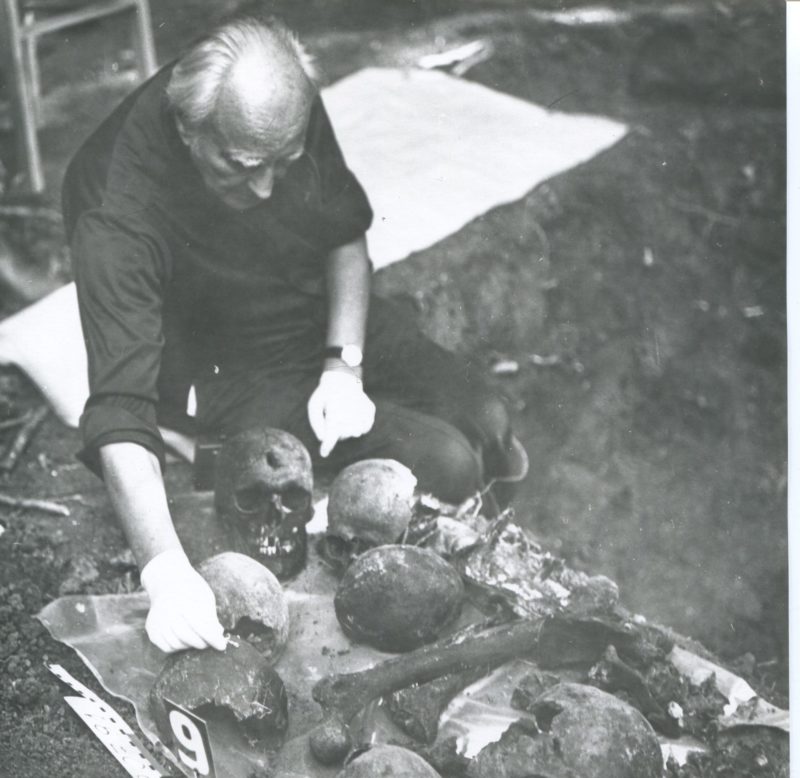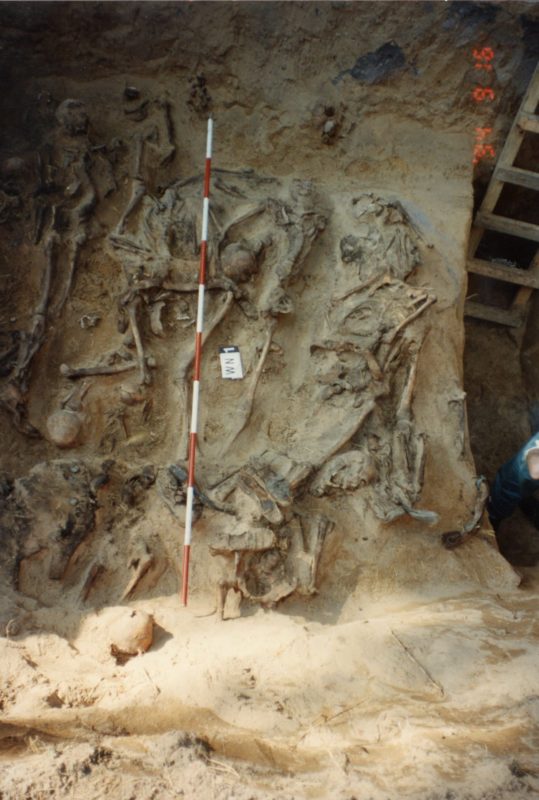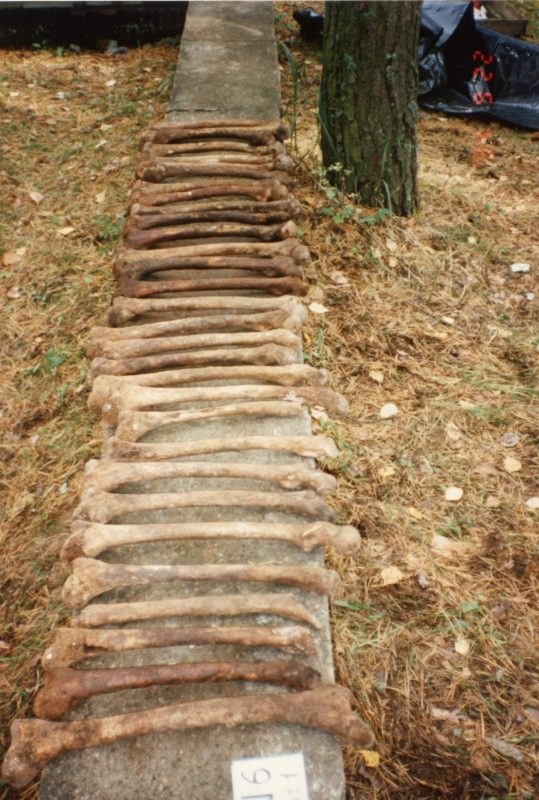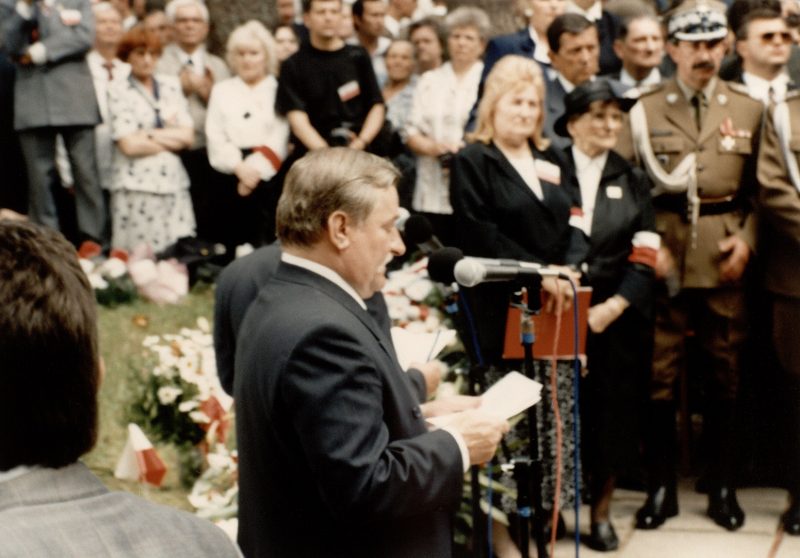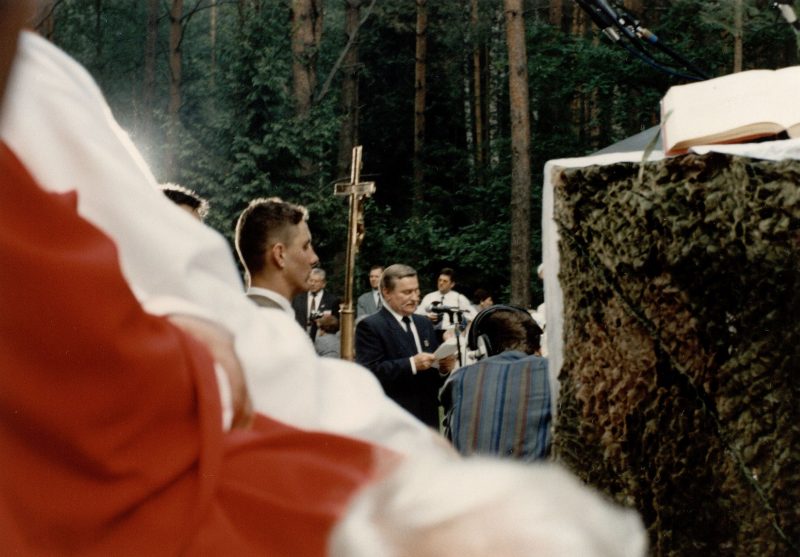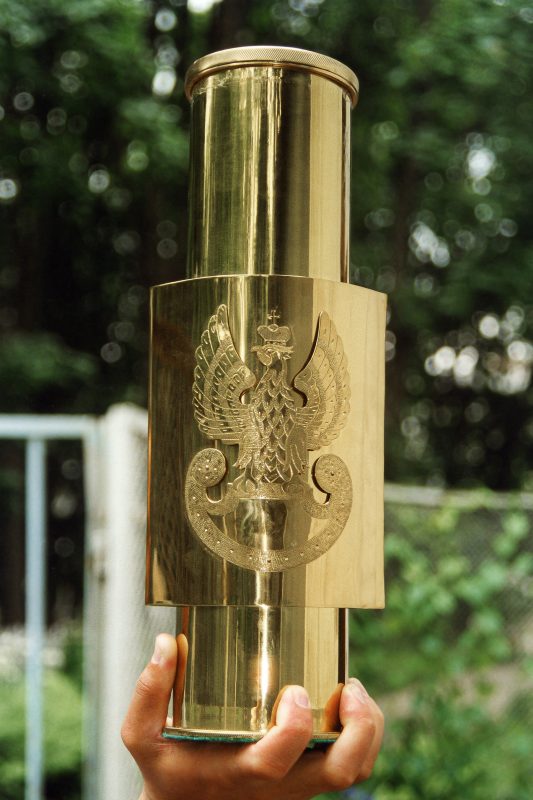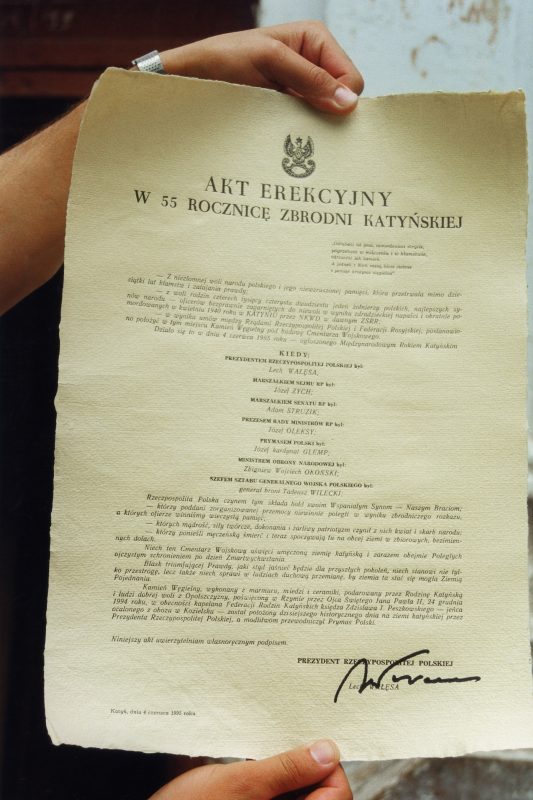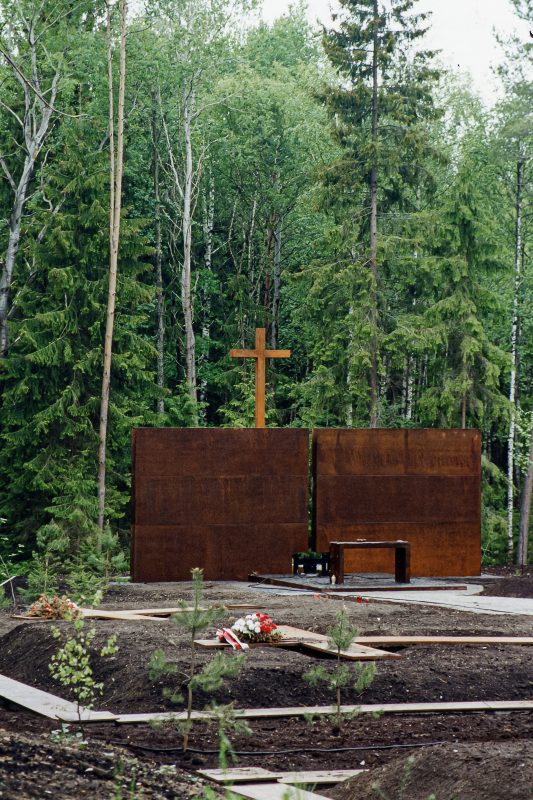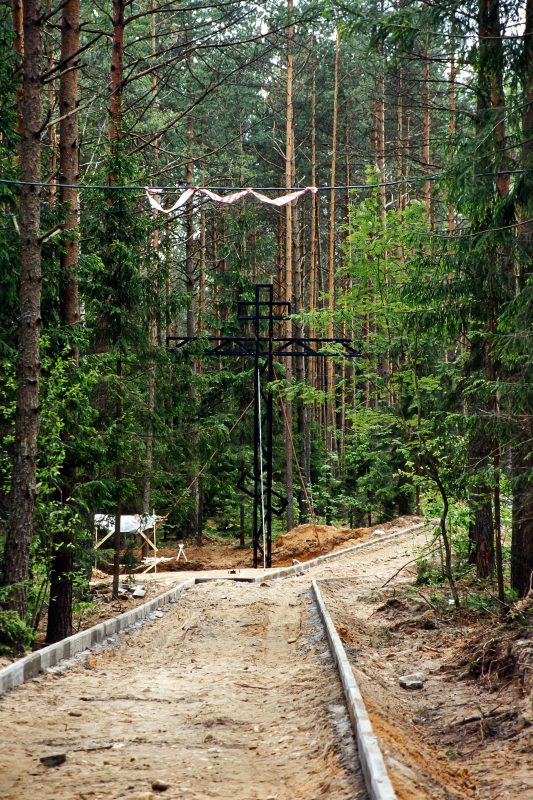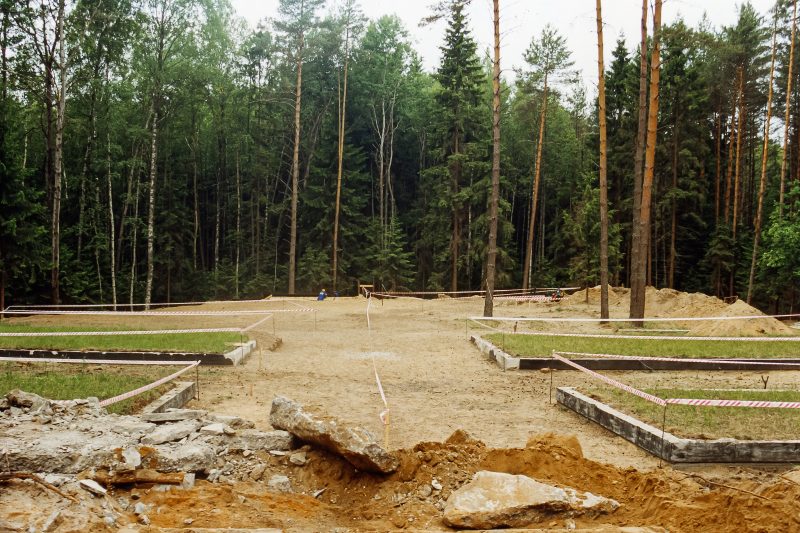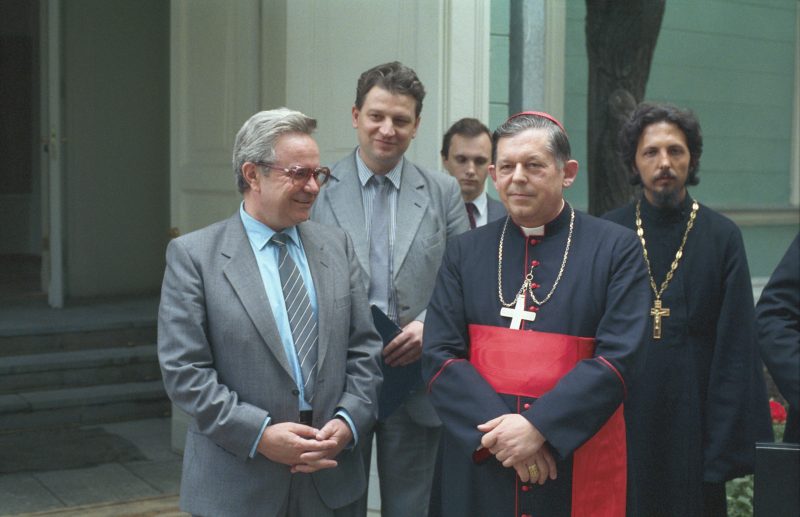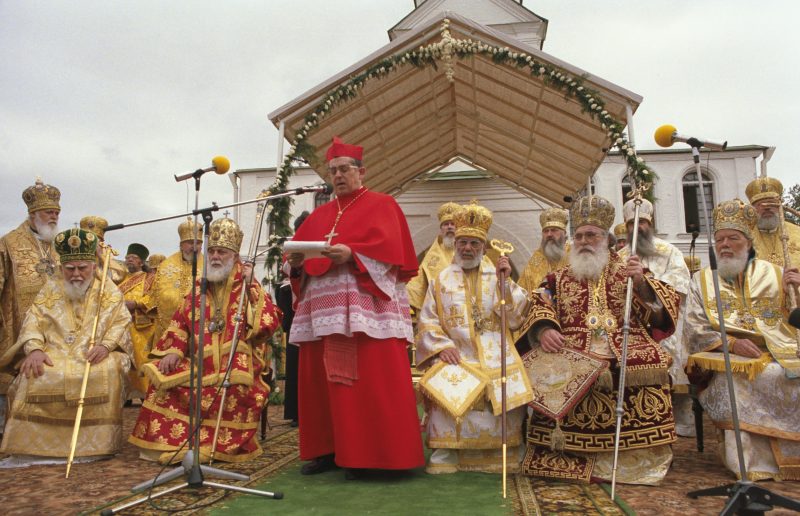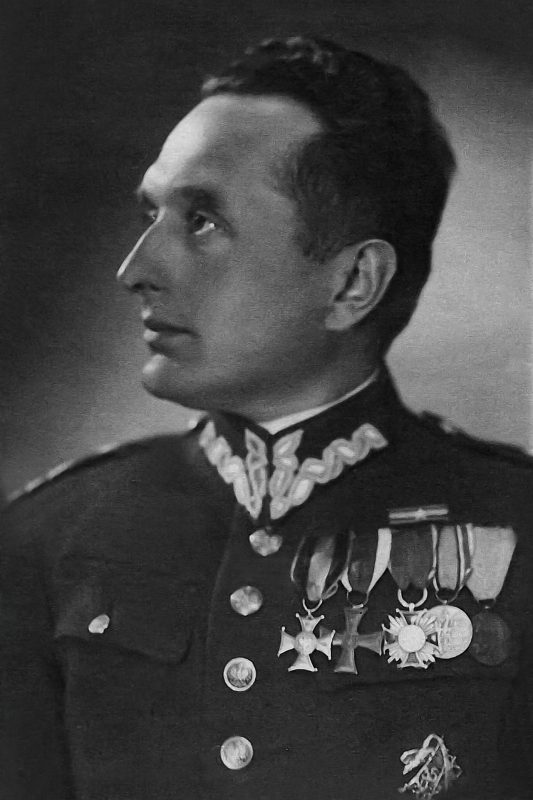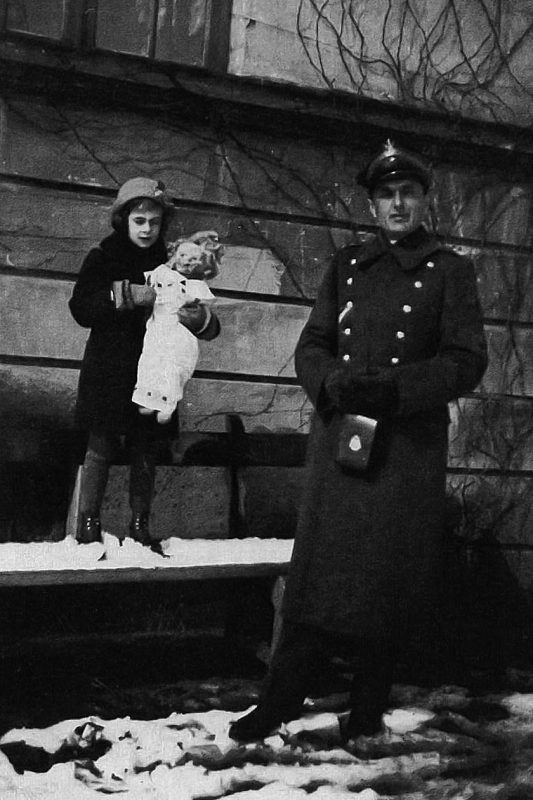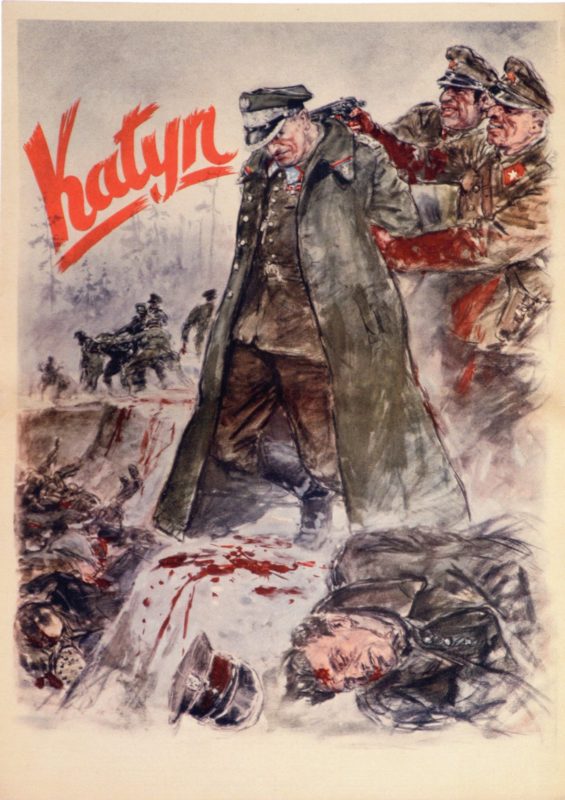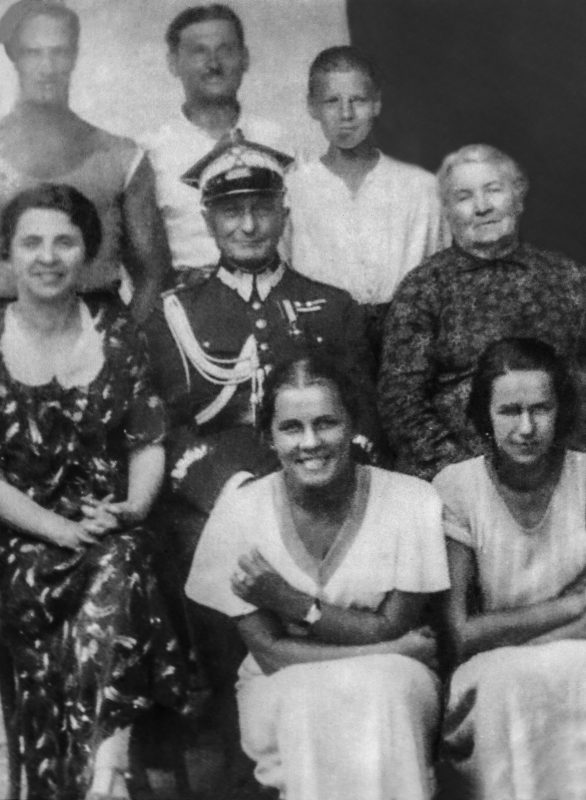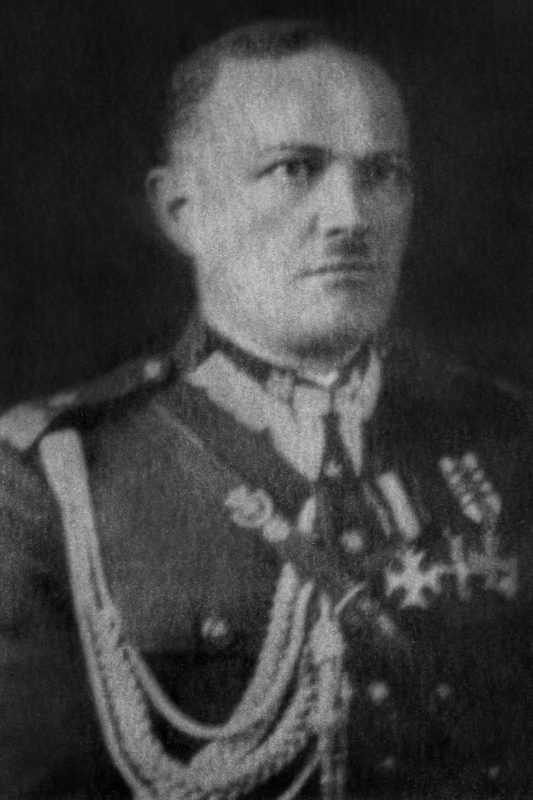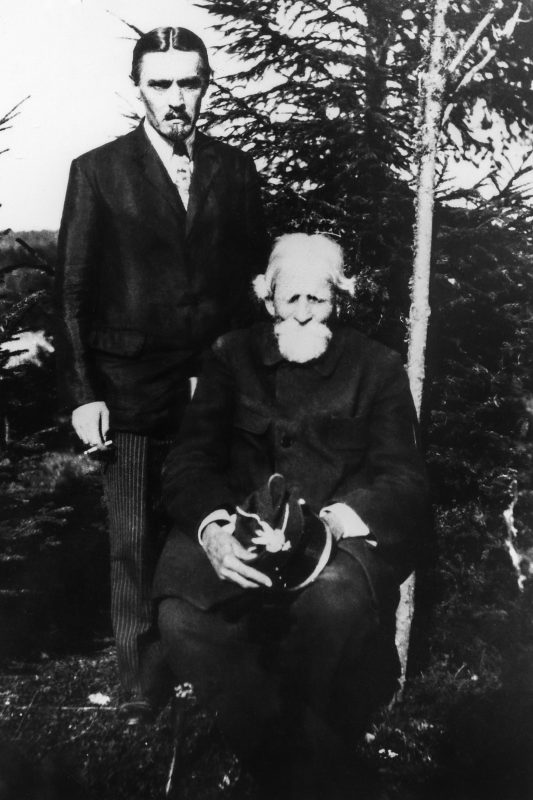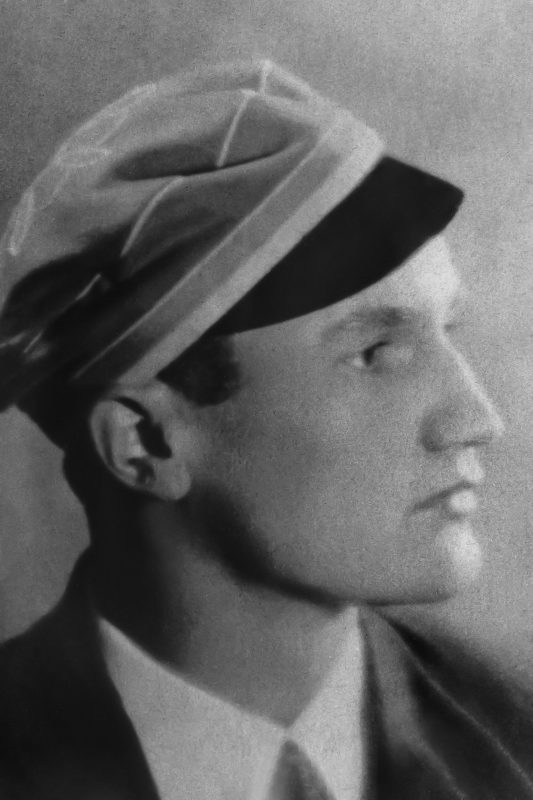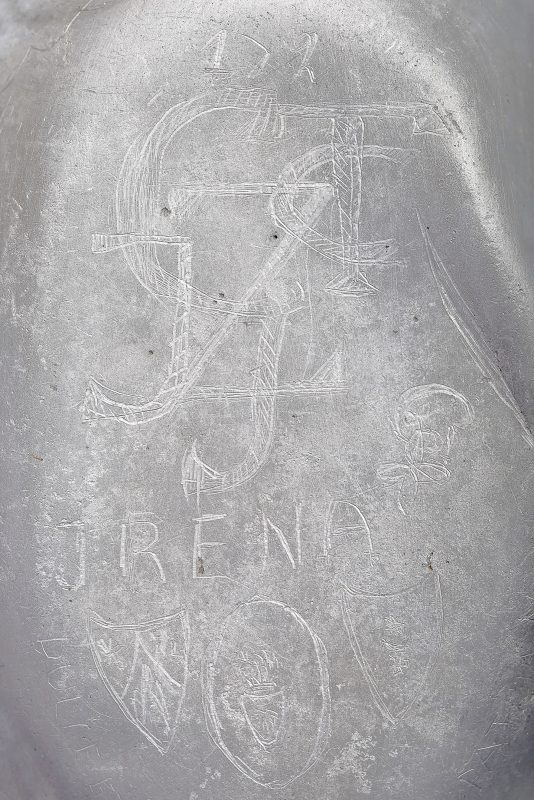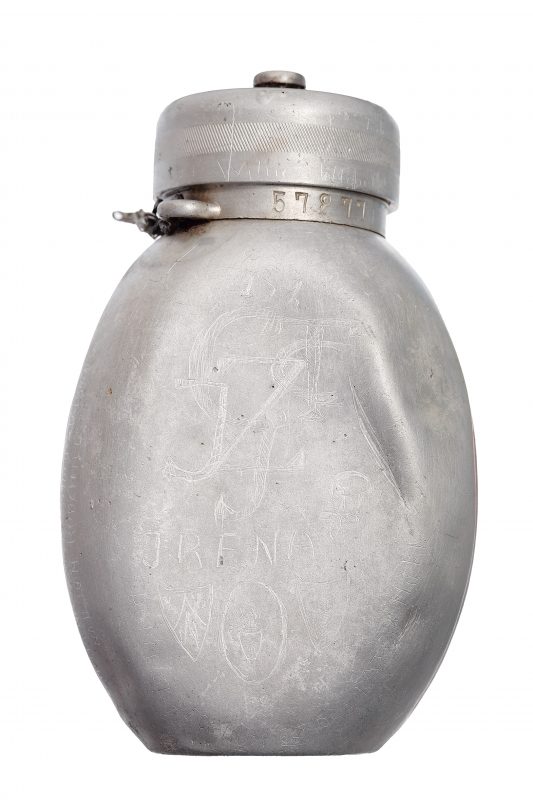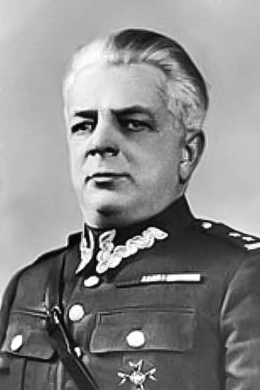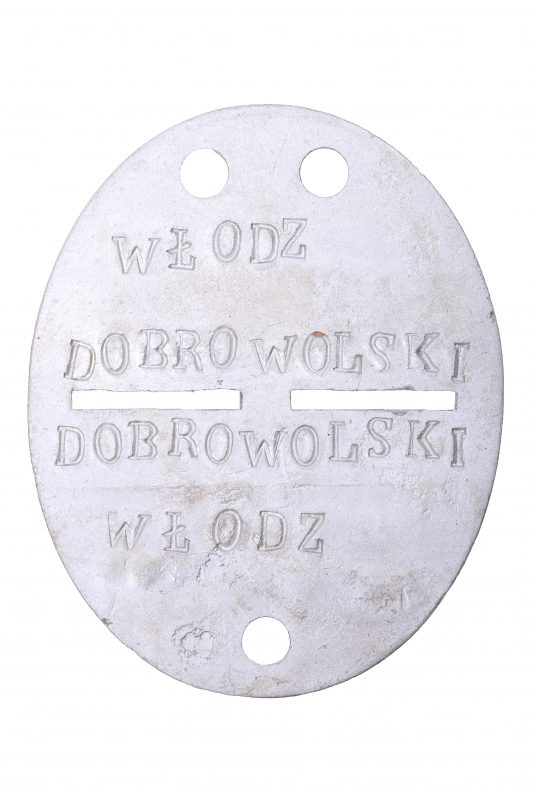„[He was] a man of deep knowledge, manners and intelligence. He longed for a strong Poland, based on new ideological foundations.”
pilot Jan Rodziewicz, a prisoner of Kozelsk who escaped execution, on General Bohaterewicz.
Bronisław Bohaterewicz was born on 26 (27) February 1870 near Grodno. He was descended from the nobility. He was the son of Kazimierz and Maria (née Kowalicka). At the age of 19, he joined the Imperial Russian army, graduating from the Vilnius Infantry School in 1913. During World War I, he was promoted to the rank of major. He was wounded on the eastern front in November 1914 and remained in German captivity until the end of the armed conflict.
After the war he joined the newly created Polish Army but was not formally accepted with his rank of major from the Russian Imperial Army until June 1919. In June 1920 he was promoted to the rank of lieutenant colonel. From that time, he commanded the Niemen Infantry Brigade and the Central Lithuania Auxiliary Brigade. In May 1922, he was promoted to the rank of colonel in the Polish Army. In the 1920s, he commanded, among others, the 20th Infantry Division in Słonim and the 18th Infantry Division in Łomża. In February 1927 he was promoted to the rank of Brigadier General and retired a few months later. As a military settler, he settled permanently in the Grodno county. He had a wife and two children. He received many awards for his military service, including the Silver Cross of the Order of Virtuti Militari, the Commander’s Cross of the Order of Polonia Restituta, the Gold and Silver Cross of Merit and (four times) the Cross of Valour.
After the Soviet aggression against Poland, General Bohaterewicz was arrested by the NKVD on 25 September 1939 in Tieshen and taken to the NKVD POW camp in Putyvl. On 3 November 1939 he arrived at the Kozelsk camp. On 7 April 1940, he was sent to be at the disposal of the NKVD Regional Office in Smolensk. His name is included on consignment note No. 015/2 dated 5 April 1940 under No. N-411-7-1139. He was probably shot on 9 April 1940 in Katyn.
When the graves of Polish officers in Katyn were discovered by the Germans in April 1943, his body was quickly identified. The deaths of General Bohaterewicz and General Smorawiński, as high-ranking officers of the Polish Army, were often highlighted by German propaganda. On 16 April 1943 the first list of victims was presented in Goniec Krakowski, and it included the name of General Bohaterewicz. A day later, the same newspaper published photos of exhumed bodies of generals on its front page. According to the account by Ferdynand Goetel, who visited Katyn in April 1943, he received the ribbon of the Virtuti Militari cross from General Bohaterewicz’s coat from Professor Gerhard Buhtz. This relic was destroyed by fire during the Warsaw Uprising in 1944. General Bohaterewicz and General Smorawiński were buried in separate coffins and graves in 1943. In 1995, after the repeated exhumations were carried out by Polish archaeologists, a ceremonial funeral was organised for both generals.
Pursuant to the decision of 5 October 2007, adopted by President of the Republic of Poland, Lech Kaczyński, Brigadier General Bronisław Bohaterewicz was posthumously promoted to the rank of Major-General of the Polish Army.
Mieczysław Makary Smorawiński – Brigadier General
Mieczysław Makary Smorawiński was born on 25 December 1893 in Kalisz. He was the son of Jan and Marianna (née Zagrodzka) and had seven siblings. The whole family lived in Turek near Kalisz. From an early age, Smorawiński was active in various organisations fighting for Poland’s independence. In 1911 he was sentenced to six months’ imprisonment for his activity in the youth independence organization “Zarzewie,” and sent to Dnipro. Upon his return, he went to Lviv, where he began a degree programme in chemistry at the Lviv University of Technology in 1912. He joined the independence organisation “Polish Rifle Teams” (Polskie Drużyny Strzleckie), where he learned how to handle weapons and underwent military training. On the outbreak of World War I, he left for Krakow and joined the emerging Polish Legions. He did not inform his family about joining the army and sneaked out of his home at night, leaving only a farewell letter. At the end of the war he was affiliated with the infantry regiment of the Polish Auxiliary Corps, and then with the Polish Armed Forces.
On 1 November 1918, he joined the Polish Army as a major. He commanded the 8th Infantry Regiment of the Legions. He fought near Lviv, in Ukraine, Lithuania and Belarus. During the Polish-Bolshevik war, he commanded the 4th Infantry Regiment of the Legions and the 4th Infantry Brigade. On 1 January 1928, he was promoted by the President of the Republic of Poland, Ignacy Moscicki, to the rank of brigadier general. At the age of only 35, he became the youngest general in the Polish Army. He served in Grodno where he was the deputy commander of Corps District No. 3, and since 1934, he was the commander of Corps District No. 2 in Lublin.
After the German attack against Poland, he stayed in Kovel and then in Volodymyr-Volynskyi, where he began talks with the Soviets after their entry into the town. On 20 September 1939 he was detained by the NKVD. Initially, he was sent to the NKVD camp in Shepetivka, and then to the POW camp in Yuzha. In early November, together with other officers, Smorawiński was sent to Kozelsk. He soon became a figure of authority in the camp, making sure that the prisoners of war maintained their dignity as officers of the Polish Army.
On 7 April 1940, he was sent to be at the disposal of the NKVD Regional Office in Smolensk. His name is on the consignment list No. 015/2 dated 5 April 1940 under No. N-411-6-1140. He was murdered in Katyn together with other generals and POWs from this list, probably on 9 April 1940.
In April 1943, his body and that of General Bohaterewicz were identified in Katyn during the early stage of the exhumation works. General Smorawiński had his hands tied behind his back and a bullet hole in the occipital region of his skull. Initially, the general’s family, like most families of the murdered prisoners, did not believe the German reports, considering them to be false. After the exhumation photos were published, Smorawiński’s son, Jurek recognised his father’s cigarette case, which was found by the body. The Germans intended to use the Smorawiński family for a propaganda campaign formed around the Katyn Massacre. The general’s wife, Helena and his children were summoned to a German office. They were told to read the texts prepared by the Germans in front of the microphone. The general’s son was expected to read out, among other things, that when he grows up, he will avenge his father’s death, and his wife was told to read out that she would pray for the Bolsheviks’ victims. Ultimately, the Smorawiński family refused to cooperate. On 11 June 1943, a holy mass organised by the Germans for the soul of General Smorawiński took place at the Lublin Cathedral. The family of the murdered general was supposed to take part in the service. A sound system comprising of microphones and other equipment was installed in the church to enable the mass to be broadcast outside the walls of the cathedral. Despite the untruthful message printed in Polish-language newspapers published by the Germans, the Smorawiński family did not appear at the service. However, Stanisław Smorawiński was sent to Katyn, where he recognised his brother’s body and demanded that the Germans bury the identified generals in separate coffins.
Despite refusing to cooperate with the Germans, the Smorawiński family had to live with the stigma of the Katyn Massacre. They fled from Lublin to Krakow before the approaching Red Army arrived. After the end of the war, widow Helena Smorawińska and her children were unable to find work there.
Pursuant to the decision of the President of the Republic of Poland, Lech Kaczyński of 5 October 2007, Brigadier General Mieczysław Smorawiński was posthumously promoted to the rank of Major-General of the Polish Army. For his achievements during World War I and the Polish-Bolshevik war, he was awarded the Silver Cross of the Virtuti Militari Order, the Commander’s Cross of the Order of Polonia Restituta, the Cross of Independence, the Cross of Valour (four times), the Gold Cross of Merit and the National Order of Légion d’honneur.
Author: KŁ
